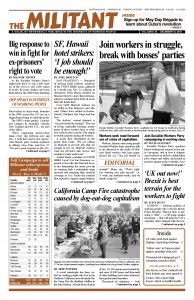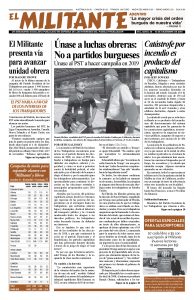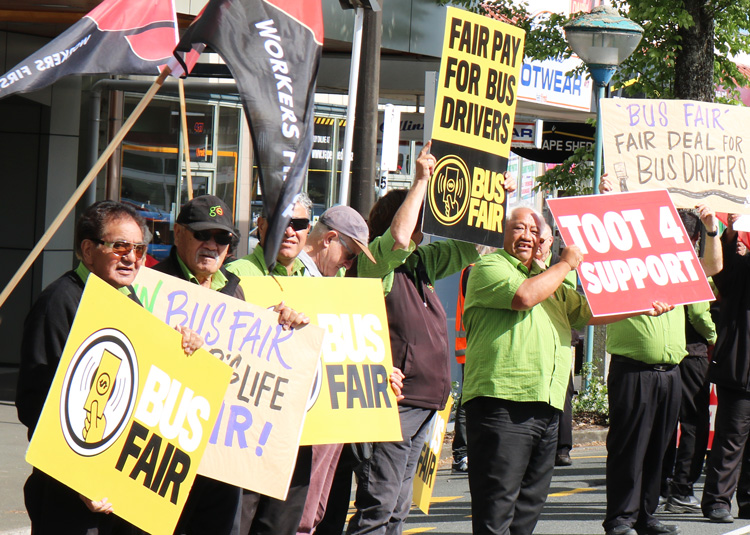HAMILTON, New Zealand — Union bus drivers were back driving the streets here Nov. 24 after fighting a five-day lockout by the Go Bus company. The First Union announced that Go Bus and the city government had agreed to a substantial pay raise.
The lockout was imposed after union drivers had planned to launch a protest in which they would not collect fares from passengers. Shut out from their buses, they built support for their wages’ fight by organizing daily pickets in busy city streets.
Militant reporters joined a picket line of 50 drivers and supporters outside the Waikato Regional Council Building Nov. 20. The council is responsible for services throughout the region, of which Hamilton — home to 160,000 people — is part. Workers cheered as numerous drivers tooted their horns in solidarity.
Joe Teinakore, a First Union delegate (shop steward), told the Militant that unionists had earlier blocked some buses from exiting one of the city’s bus depots. Teinakore works out of the depot, where about half the 150 drivers are in the union, he said. The fight has been going on for some 20 months.
“We work our butts off — it’s not an easy task to be driving — so we just want to be treated fairly,” said Jono Walters, who has been driving four years for Go Bus and its predecessor Pavlovich Coachlines.
Another driver told the Militant that he works 64 hours over six days to make enough to pay the rent and help provide for his family. Workers described working a variety of shifts, from part-time jobs often handled by workers over retirement age to split shifts that divide morning and afternoon routes with an hourslong unpaid break.
The company’s imposition of the lockout “showed they want to be in control — it’s about power,” said Isobel Waitere, who has been a driver for Go Bus for one year. The lockout brought the dispute “out in the open,” she said.
While talks are ongoing, the First Union said the regional council, which contracts the bus routes to Go Bus, has agreed to allocate extra funding for wage increases that would “align with the living wage.” Unions in New Zealand say that should be $20.55 an hour — about $2 more than most drivers earn.


